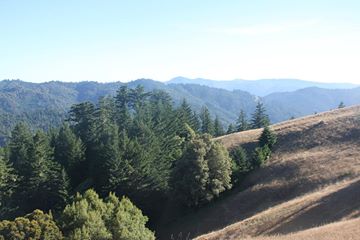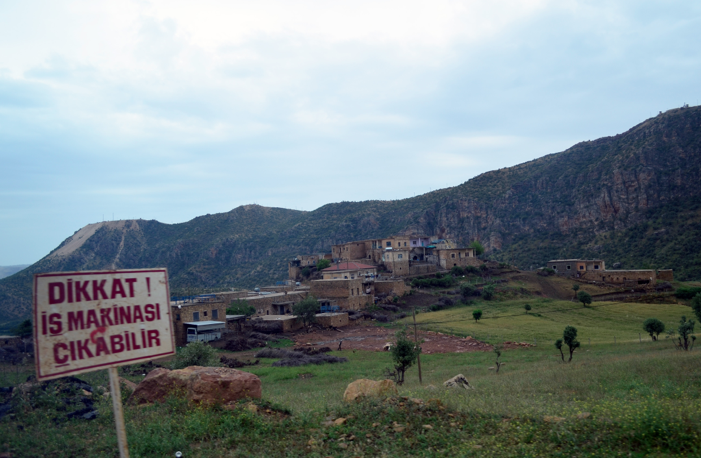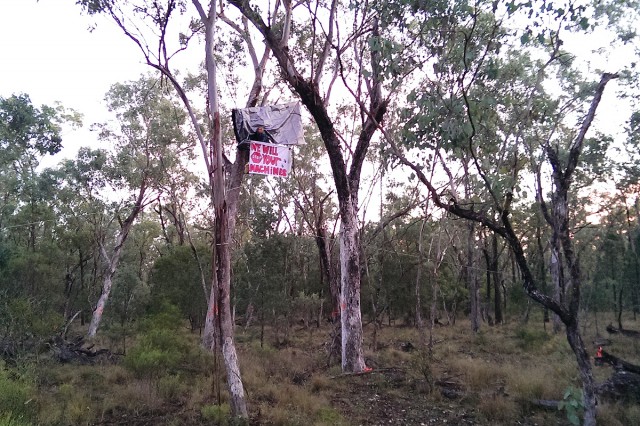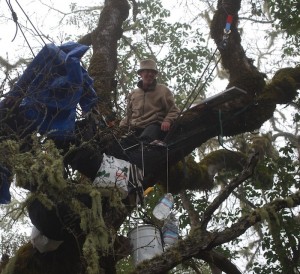 30th June Summary of arrests and trials since the demo in Nantes, February 22nd, according to information found by the anti-repression committee (CARILA)
30th June Summary of arrests and trials since the demo in Nantes, February 22nd, according to information found by the anti-repression committee (CARILA)
February 22nd: 14 arrests, two released without charge. Of the 12 people charged, 5 had immediate trials the next day, and the 7 others will have trials later (3 on June 19th, 2 minors in children’s court, and no news for the 2 others).
February 24th: 5 immediate trials, 4 of them judged for “violence against someone with public authority”, and “participating in an armed group”. They were all convicted.![]() 100 hours of community service
100 hours of community service![]() 5 months suspended sentence
5 months suspended sentence![]() 5 months of prison
5 months of prison![]() 5 months of prison and 1 month probation
5 months of prison and 1 month probation![]() 6 months of prison and 6 months of probation + 500 euros for the undercover cops supposedly injured
6 months of prison and 6 months of probation + 500 euros for the undercover cops supposedly injured
Of all those convicted this day, no one went directly to prison. This means that they can negotiate a lighter sentence.
March 31st: First wave of arrests after the demo: 9 people were arrested at home (in Carquefou, St. Herblain, Nantes, and Ille-et-Vilaine).
![]() 2 were released without charges
2 were released without charges![]() 4 were judged the next day in immediate trials
4 were judged the next day in immediate trials![]() 2 minors: one accused of throwing fireworks at the police judged in juvenile court, placed under house arrest until their trial in 2015, the other we don’t think they were charged but we have no confirmation
2 minors: one accused of throwing fireworks at the police judged in juvenile court, placed under house arrest until their trial in 2015, the other we don’t think they were charged but we have no confirmation![]() 1 person had a trial later but we don’t have contact with them
1 person had a trial later but we don’t have contact with them
April 1st: Immediate trials for those arrested the day before
![]() P: 4 months suspended sentence, forbidden to carry weapons for a year, forbidden to protest in Notre Dame des Landes and Nantes for a year
P: 4 months suspended sentence, forbidden to carry weapons for a year, forbidden to protest in Notre Dame des Landes and Nantes for a year![]() J: 5 months of prison, forbidden to carry weapons for 2 years, forbidden to protest in Nantes for 2 years
J: 5 months of prison, forbidden to carry weapons for 2 years, forbidden to protest in Nantes for 2 years![]() G: 2 months suspended sentence + 2 months prison (suspended sentence from last arrest), aquitted for vandalism
G: 2 months suspended sentence + 2 months prison (suspended sentence from last arrest), aquitted for vandalism![]() E: 1 year of prison, starting immediately after the trial, forbidden to protest for 3 years, forbidden to have explosives or flammable materials for 3 years. The judge doubled the sentence that the DA asked for!
E: 1 year of prison, starting immediately after the trial, forbidden to protest for 3 years, forbidden to have explosives or flammable materials for 3 years. The judge doubled the sentence that the DA asked for!
May 14th: G arrested in Paris under a warrant for vandalism February 22nd. He refused an immediate trial, fuzzy photos were the only evidence. He was placed in preventative detention, but got out a month later because of a procedural error. His trial is July 16th.
May 27th: R. arrested in the street in Rennes by undercover cops, transferred to Nantes. He refused immediate trial, and was put under house arrest, and forbidden from the Loire-Atlantique region until his trial, June 19th.
June 13th: Additional trial for someone convicted February 24th to decide how much they should pay in damages to the undercover cops. No information on the verdict for the moment.
June 18th:![]() O. arrested at home in Rennes, accused of vandalism, he has an immediate trial the next day.
O. arrested at home in Rennes, accused of vandalism, he has an immediate trial the next day.![]() Someone from the ZAD arrested in Nantes, who had a warrant out for violence against the police and participating in an armed group.
Someone from the ZAD arrested in Nantes, who had a warrant out for violence against the police and participating in an armed group.
June 19th:![]() Trial for 3 people arrested during the demo -K: convicted of throwing paving stones towards the police and arrested in possession of a hammer and an iron bar, 4 months suspended sentence, 18 months probation (forced to find a job or go to vocational school, and forbidden to carry weapons) + 105 hours of community service -C: convicted of participation in an armed group and throwing a beer can at the police, sentenced to 2 months suspended sentence -G: arrested in possession of a hammer, sentenced to 1 month suspended sentence
Trial for 3 people arrested during the demo -K: convicted of throwing paving stones towards the police and arrested in possession of a hammer and an iron bar, 4 months suspended sentence, 18 months probation (forced to find a job or go to vocational school, and forbidden to carry weapons) + 105 hours of community service -C: convicted of participation in an armed group and throwing a beer can at the police, sentenced to 2 months suspended sentence -G: arrested in possession of a hammer, sentenced to 1 month suspended sentence![]() Hearing for O. (arrested in Rennes the day before): he refuses his trial and is put under house arrest until his trial, July 10th
Hearing for O. (arrested in Rennes the day before): he refuses his trial and is put under house arrest until his trial, July 10th![]() Trial of R. (arrested in Rennes, May 27) for vandalism and participating in an armed group. Sentenced to 8 months suspended sentence + 1 month suspended sentence + 5218 euros in damages for the city of Nantes+ forbidden from Loire-Atlantique region for 2 years.
Trial of R. (arrested in Rennes, May 27) for vandalism and participating in an armed group. Sentenced to 8 months suspended sentence + 1 month suspended sentence + 5218 euros in damages for the city of Nantes+ forbidden from Loire-Atlantique region for 2 years.![]() Hearing for 5 people arrested 2 days before by undercover cops while driving: -one person (a hitch-hiker) accepted the immediate trial, convicted to possession of 1 gram of hash + refusing fingerprints and DNA. No sentence 3 people refused immediate trials and are put under house arrest until their trial, July 18th 1 person refused an immediate trial and is in prison awaiting trial (July 18th)
Hearing for 5 people arrested 2 days before by undercover cops while driving: -one person (a hitch-hiker) accepted the immediate trial, convicted to possession of 1 gram of hash + refusing fingerprints and DNA. No sentence 3 people refused immediate trials and are put under house arrest until their trial, July 18th 1 person refused an immediate trial and is in prison awaiting trial (July 18th)
“They were arrested tuesday after a “random” identity control by undercover cops on the ring road in Nantes. Amoung them was R., who had a trial Thursday and was on their way to Nantes to see their lawyer with their friends. After 48 hours of police custody, 4 of them were charged with “possession of stolen goods”, suspected of having stolen… a head lamp. Also they refused to give fingerprints and DNA. More seriously, they are accused, based on some flyers in their car and a toolbox, of “association of wrong-doers”, and “intent to commit an armed assembly in front of the courthouse in Nantes”. They risk up to 5 years in prison.”
June 20th: Hearing for S., who lives on the ZAD. He was arrested 2 days before in Orvault, accused of having stolen 2 books. He had a warrant out for participating in the February 22nd demo. He is accused of theft (with prior convictions), refusing fingerprints and DNA (with prior convictions), and participating with a weapon in an armed group, and violence against the police. He refused an immediate trial and has been put in jail awaiting his trial on July 7th.
2 people are currently in preventative detention, awaiting trial.

 30th June Summary of arrests and trials since the demo in Nantes, February 22nd, according to information found by the anti-repression committee (CARILA)
30th June Summary of arrests and trials since the demo in Nantes, February 22nd, according to information found by the anti-repression committee (CARILA)
 30th June This morning, climate justice activists with
30th June This morning, climate justice activists with  30th June This morning, climate justice activists with
30th June This morning, climate justice activists with 
 30th June A forest defender has taken to the trees to defend an important area of the Mattole Riv
30th June A forest defender has taken to the trees to defend an important area of the Mattole Riv 30th June A forest defender has taken to the trees to defend an important area of the Mattole River watershed in Northern California. Going by the name “Skunk,” the blockader is stopping the construction of a new logging road into old-growth forest.
30th June A forest defender has taken to the trees to defend an important area of the Mattole River watershed in Northern California. Going by the name “Skunk,” the blockader is stopping the construction of a new logging road into old-growth forest.
 26th June An administrative court in the Black Sea province of Rize has ruled to halt the construction of a hydroelectric power plant (
26th June An administrative court in the Black Sea province of Rize has ruled to halt the construction of a hydroelectric power plant ( 26th June An administrative court in the Black Sea province of Rize has ruled to halt the construction of a hydroelectric power plant (HES) that was being built on the Andon River, which provides fresh water to at least 3,000 people in the village of Küçükçayır.
26th June An administrative court in the Black Sea province of Rize has ruled to halt the construction of a hydroelectric power plant (HES) that was being built on the Andon River, which provides fresh water to at least 3,000 people in the village of Küçükçayır. 14th June
14th June 14th June
14th June 13th June Australia Whitehaven Coal yesterday announced it would halt its clearing of Leard State Forest until September following an injuncti
13th June Australia Whitehaven Coal yesterday announced it would halt its clearing of Leard State Forest until September following an injuncti 13th June Australia Whitehaven Coal yesterday announced it would halt its clearing of Leard State Forest until September following an injunction in the NSW Land and Environment Court by the Maules Creek Community Council.
13th June Australia Whitehaven Coal yesterday announced it would halt its clearing of Leard State Forest until September following an injunction in the NSW Land and Environment Court by the Maules Creek Community Council. 13th June After an eight-year struggle, Chile’s grassroots and environmental movements have successfully won the rejection of five planned megadams on two Patagonian rivers!
13th June After an eight-year struggle, Chile’s grassroots and environmental movements have successfully won the rejection of five planned megadams on two Patagonian rivers!
 10th June Long-standing trespass charges against Mark Herbert, aka “Falcon,” who perched in an old oak tree in April, 2013, above the hill west of Highway 101 that Caltrans is now
10th June Long-standing trespass charges against Mark Herbert, aka “Falcon,” who perched in an old oak tree in April, 2013, above the hill west of Highway 101 that Caltrans is now  10th June Long-standing trespass charges against Mark Herbert, aka “Falcon,” who perched in an old oak tree in April, 2013, above the hill west of Highway 101 that Caltrans is now excavating for soil to construct the much-protested Willits Bypass, where he observed and reported on developments, were dismissed entirely on May 29th by Judge Ann Moorman in Ukiah Superior Court. Falcon was charged with trespass 602K, “entering any lands, whether unenclosed or enclosed by fence, 1) for the purpose of injuring any property or property rights or with the intention of interfering with a lawful business…”
10th June Long-standing trespass charges against Mark Herbert, aka “Falcon,” who perched in an old oak tree in April, 2013, above the hill west of Highway 101 that Caltrans is now excavating for soil to construct the much-protested Willits Bypass, where he observed and reported on developments, were dismissed entirely on May 29th by Judge Ann Moorman in Ukiah Superior Court. Falcon was charged with trespass 602K, “entering any lands, whether unenclosed or enclosed by fence, 1) for the purpose of injuring any property or property rights or with the intention of interfering with a lawful business…” 29th May 2014 Rathlin Energy caught activists napping today when lorries arrived at Crawberry Hill site in East Yorkshire.
29th May 2014 Rathlin Energy caught activists napping today when lorries arrived at Crawberry Hill site in East Yorkshire. 29th May 2014 Rathlin Energy caught activists napping today when lorries arrived at Crawberry Hill site in East Yorkshire. The police had allowed Rathlin to ignore (no right turn) traffic signs to gain access without the knowledge of the activists waiting further down the road.
29th May 2014 Rathlin Energy caught activists napping today when lorries arrived at Crawberry Hill site in East Yorkshire. The police had allowed Rathlin to ignore (no right turn) traffic signs to gain access without the knowledge of the activists waiting further down the road. 24th May Following on from the arrests of two local residents last week, a further arrest has been made of an activist playing music in Beverley (near Hull.) A flotilla of Police, from the Humberside division, armed with tazers and dogs, swooped into Beverley, town centre, as the
24th May Following on from the arrests of two local residents last week, a further arrest has been made of an activist playing music in Beverley (near Hull.) A flotilla of Police, from the Humberside division, armed with tazers and dogs, swooped into Beverley, town centre, as the  24th May Following on from the arrests of two local residents last week, a further arrest has been made of an activist playing music in Beverley (near Hull.) A flotilla of Police, from the Humberside division, armed with tazers and dogs, swooped into Beverley, town centre, as the busker and anti fracking activist known as Daznez was playing and singing music in Beverley town centre. Local people who were watching and listening to the musician remarked at the heavy handedness of the arrest as at least six police personnel and their dogs took the musician into custody. The musician has been taken to Clough Road, Police Station in Hull but has not yet been charged with an offence.
24th May Following on from the arrests of two local residents last week, a further arrest has been made of an activist playing music in Beverley (near Hull.) A flotilla of Police, from the Humberside division, armed with tazers and dogs, swooped into Beverley, town centre, as the busker and anti fracking activist known as Daznez was playing and singing music in Beverley town centre. Local people who were watching and listening to the musician remarked at the heavy handedness of the arrest as at least six police personnel and their dogs took the musician into custody. The musician has been taken to Clough Road, Police Station in Hull but has not yet been charged with an offence.